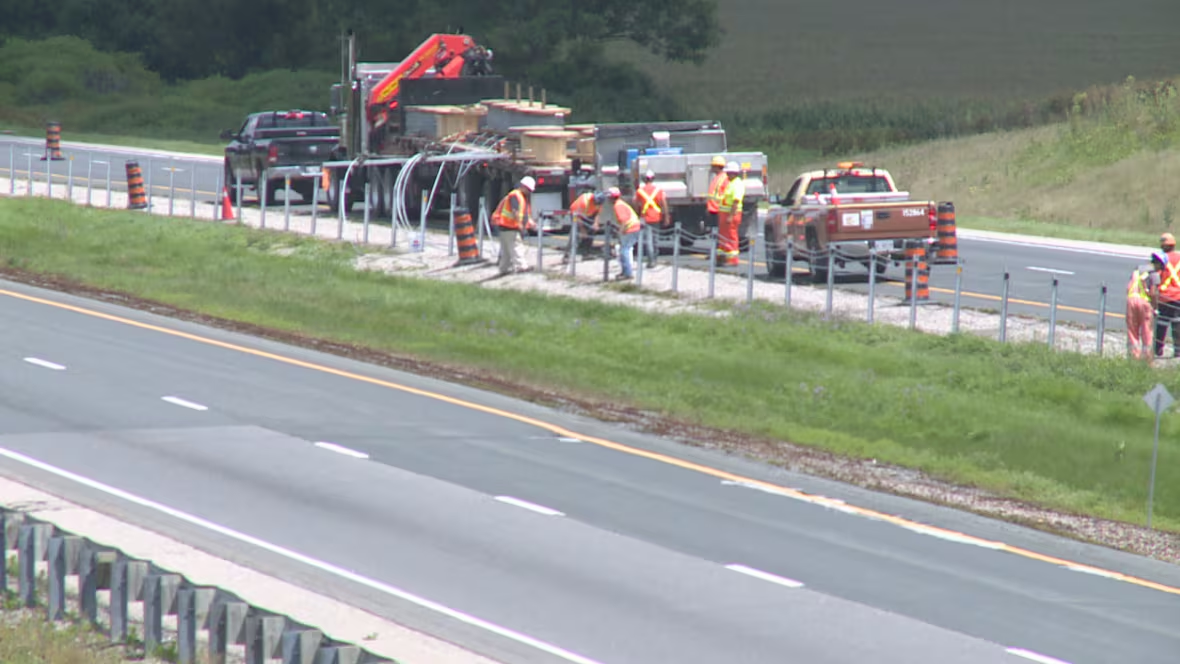High-tension cable barriers test successfully following Highway 401 crash
The Ministry of Transportation says concrete barriers are on the way — but there’s a lot of work to be done

High-tension cable barriers recently installed on the section of Highway 401 commonly known as "carnage alley" have been tested and were successful following an incident with a tractor trailer.
-
Carnage Alley cable barrier a step forward but not a solution says family, friend of victims
-
Province to build concrete barrier along Hwy. 401's 'Carnage Alley'
Early Saturday morning, Chatham-Kent Ontario Provincial Police were called to a motor vehicle rollover on Highway 401 near Kenesserie Road.
Due to road conditions, an eastbound pickup truck lost control, struck the centre median cable barrier and rolled over, police said. The truck was carrying an engine, which dislodged and landed in the westbound lane following the crash.
A westbound tractor trailer collided with the engine, lost control and struck the centre median cable barrier as well.
"Both vehicles were prevented from crossing through the centre median by the barrier, reducing the potential for a crossover collision," police said in a media release.
Pics of an accident that happened this morning between exit 109 and 117 on the 401. The cable barrier kept the truck on its side of the highway ONLY because it caught the landing gear of the trailer. <a href="https://twitter.com/Alysson4CK?ref_src=twsrc%5Etfw">@Alysson4CK</a> <a href="https://twitter.com/fordnation?ref_src=twsrc%5Etfw">@fordnation</a> <a href="https://twitter.com/tcb433_reed?ref_src=twsrc%5Etfw">@tcb433_reed</a> <a href="https://twitter.com/hashtag/BuildTheBarrierNow?src=hash&ref_src=twsrc%5Etfw">#BuildTheBarrierNow</a> <a href="https://twitter.com/hashtag/concreteNOTcable?src=hash&ref_src=twsrc%5Etfw">#concreteNOTcable</a> <a href="https://t.co/LAovHxPWTr">pic.twitter.com/LAovHxPWTr</a>
—@bigtrkdrvrThere were no injuries reported.
The highway was closed for about 12 hours as crews cleaned up the scene.
Concrete barriers still far off
The first 64.7 kilometres of grey, high-tension cable barriers are being installed along the highway this summer, representing 55 per cent of the project.
That will cover the section of Highway 401 between Mull Road outside of Blenheim and Iona Road near Iona Station, as well as Drake Road near North Buxton and Charing Cross Road near Chatham-Kent.

The remaining section of the 118-kilometre corridor will not be finished until the end of 2021 when reconstruction of the highway is finished, according to the Ministry of Transportation.
The Ministry of Transportation said concrete barriers are on the way— but there's a lot of work to be done before they hit the median.